|
*Spoilers I want to like Peaky Blinders more than I do. The premise and setting is one of the most interesting on TV today. Everything from its costumes and set design to the cinematography and editing make it a technical marvel, and one of the best shows produced in Britain in many’s a year. The characters and acting are also a tour de force and it’s no wonder it has achieved the cultural impact it has, but there are just too many smaller issues, that over time have built up, to stop me from loving it. Season 5 sees Thomas Shelby (a near iconic Cillian Murphy) struggling with internal demons while he supplements his duties as head of the Peaky Blinders with that of an MP. Added to this are the simultaneous challenges of the Wall Street Crash, rival gangs seeking to usurp the Peaky Blinders’ dominance and a sinister politician who could change the course of the country’s history. But where most shows of its gangster ilk get stronger with each passing year, for me Peaky Blinders has never surpassed its opening season. The most obvious reason for this is the streamlined scope. The Peaky Blinders, named so for the razors they hide in their caps, are an upstart street gang in post-WWI Birmingham, where the main threats are a bigger gang boss and a police inspector closing in on them. In this most recent outing, as in the poorest season to date (Season 3), they are rubbing shoulders with some of the most influential and dangerous people of the era. Raised stakes are no bad thing, but it does sacrifice some of the rawness that were the show’s roots. It’s almost as if the show has become a victim of its own success, each year needing to outdo itself, but there’s one constant element which for me means the Peaky Blinders are never the underdogs the show tries so hard to paint them as - Tommy Shelby. After all these years he has become almost superhuman with his intellect and scheming. He even casually mentions that apparently he foresaw the Wall Street Crash coming. The show is so keen for him to be the genius antihero that they have removed all threat of him ever being defeated. I say this in the full knowledge that he “loses” at the end of this season’s finale, but that was not of his own doing. There is some mystery as to who foiled him (though not by the looks of it, any of the main antagonists), but for sure it was one of his associates or family who betrayed him, for Tommy himself never fails. This is where the show aims to reveal Tommy’s weaknesses, in his relationships with those closest to him. He is distant and often unappreciative of the people who have got him to where he is, but it is hard to empathise with him when he is equally closed off to us as viewers. He is shown, very obviously, to be having suicidal thoughts, personified by visions of his dead wife, but beyond that you never get much chance to see inside the man. Tony Soprano was so relatable as he had the same troubles and flaws as us, but Thomas Shelby is always indecipherable. You never see him formulate his plans, or have any semblance of a normal life, hell I forgot he even had children at points this season. He is always the enigma in the long black coat. This is a greater issue I find with the show, it often becomes too interested in being cool at the expense of story. It is a visual masterclass, however some of these don’t make sense. For example, there is a scene where Tommy approaches a scarecrow, only for a note to reveal he is standing in a minefield. The following sequence is brilliantly tense, as he treads his way back through the explosive ground (how did he get to the scarecrow no problem? Doesn’t matter), before his son runs into the field as well (why does he do that? Doesn’t matter, Tommy’s indestructible but his son may not be!). He catches his son in time and leads him away, danger averted. However he immediately marches back into the field with a machine gun, ignoring the seemingly now harmless mines and shoots the scarecrow and the mines, though not the ones he has now walked through three times. Was it cool? Yes. Did it make a lick of sense? Not one! This was the major issue of Season 4. It smartly took the characters back to their roots against a small scale, but believably terrifying force in Adrian Brody’s New York mafioso. He kills Tommy’s brother in the opening episode - holy shit! stakes! - gets in a room with Tommy and threatens that he will kill him only after he does the rest of his family. He then kidnaps his family, and doesn’t kill them, before making the shoddiest attempts at Tommy’s life, ignoring his previous purpose. Phenomenal setup, underwhelming payoff. Season 4’s antagonist also felt an organic development of the story, as a consequence to Tommy’s previous actions. The Season 5 antagonists though, of which there are plenty, seem to just be drawn from contemporary elements and then smashed together against the Peaky Blinders. Oswald Mosely, the real life British Fascist is the main villain, who Tommy decides to target unprovoked, though as many of the supporting cast themselves ask, why? Because he’s a fascist, and fascists are bad, and Tommy Shelby needs an enemy? He often treats Tommy with unnecessary antagonism, presumably to try and stoke the conflict. Same with the Billy Boys, they come from nowhere and then almost as quickly fade back to being no more than a name dropped plot device (side whinge, dreadful Glaswegian accents and the worst onscreen depiction of Glasgow - at the time bigger than Birmingham - as a single track country road). As for the other characters this season, none of them really seemed to develop since they all live in Tommy’s shadow in terms of significance. Arthur is squandering all sympathy by reliving the same storyline he has for the last few seasons, and it’s getting tiresome, Pol, again, is given criminally little to do. The show has also indulged in my pet peeve of any interwar British drama having to include Winston Churchill. Alfie Solomon is back, not through any sense of logic, but because Tom Hardy is so fun in the role. The main standout was Michael, who now backed by his clearly smarter wife Gina is looking positioned to become a major rival to Tommy in coming seasons.
That is once they resolve the loose plot points from this season, being the first one to not definitively end. It’s not an issue that they are building a multi-season storyline, in fact several of the issues I’ve griped about could be aided by having longer seasons, but it does mean this season feels pretty inconsequential, a lot of plate spinning for resolutions that we won’t see for another year. There is so that Peaky Blinders does so well, the camerawork (one scene where an entire bullet extraction was shot in one take was remarkable TV), the editing and its world building all deserve mentioning again, as does the often brilliant dialogue (“I’m glad I didn’t shoot you, it would’ve been a kindness.”). But then it misses too many opportunities to prevent it from moving beyond a good, stylish show to challenge the top tier of American gangster shows which at some point it could have done.
3 Comments
Recently I was working on two ads that, as deadlines would have it, were filming within a week of each other. Beyond the fact they were both shoots and all the similarities that entails, they couldn’t have been more opposite ends of the style spectrum. Now they’re both on air and I’ve had a chance to catch up on my sleep (20-year-old location-drama floor-runner me would be embarrassed), here’s a brief comparison of the two.
First up was Heriot-Watt, a university in Edinburgh who wanted to get more applicants for their courses, having not advertised as much as their competitors in recent years. The brief had different elements they wanted to promote, including their heritage, range of courses and employability. Their current campaign is “Be Future Made,” which provided a good kicking off point. The client also had a strong idea of the kind of adverts he liked, inspiring, emotional and voiceover led. After a round of scripts, it became a little bit of A and a little of B, then we were swinging into production. Heriot-Watt is an entire university and, therefore, huge. Meeting the client to discuss the script was so useful as it turned into a subterfuge recce, almost entirely informing the shot list. You never can know a client well enough until you get out and understand their world. We also firmed up the aims of the ad, to showcase the range of courses on offer - mostly scientific and engineering, but also including finance, social sciences and textiles, reference their international campuses in Dubai and Malaysia, and highlight the diversity of the students coming from a whole range of backgrounds. So, quite a lot to do in 30 seconds.
Time was always the concern on this job, trying to balance everything that needed to be included and in timescales that were not the most generous. Things that aided us were we obviously already had a location and in most cases it was pretty photogenic; Heriot-Watt had a group of student ambassadors we could use for filming, essential as we couldn’t have done it without them; and we assembled a good crew of seasoned pros able to work on the fly. To check the script was working I made an animatic from recce photos and internet images, along with my best epic VO, something I try to do for every job, and though quick, all was flowing fine.
In no time it was shoot day, a 06:15 call time to get to the location in Edinburgh. We had 10 unit moves around the campus to capture as many of the courses as possible, the shot list pruned from 40 to 25 shots and the production coordinator and runner had spent a day orienting themselves and making a movement order so we wouldn’t lose precious time getting lost in identical looking corridors like kids on the first day of high school. The shooting style had to be as light as possible. Handheld, battery powered lights and everything needed to be set up in preparation for us arriving. When shooting in a well lit area, we dispatched the gaffer as a makeshift B Camera for pickup shots of exteriors, particularly during dry spells as the weather, of course, was nowhere near as cooperative as on the beautiful recce. The staff around the uni were a great help, setting up experiments, coding programs we needed and teaching a student how to operate heavy machinery. Phil (prod coord) and Barnum (runner) were terrific at keeping everything running and getting the students I was looking for where we needed them to be, myself not being able to see them before shooting (thanks GDPR). On Phil’s pedometer he clocked over 34,000 steps for the day, over 30km. Not only did we get everything we were after, without having to compromise on quality, but we wrapped 10 minutes early, getting back into Glasgow at 20:30. With it all happening so fast it was hard to see the wood for the trees, but reflecting back that we got to film with lasers, lathes and a fist bumping robot, this was a particularly fun, interesting job. The client was a great help, throwing himself into it full heartedly, and I was delighted to hear that in the first week of running searches for Heriot-Watt increased by 600%. Plus I got to see it on the big screen (my first cinema ad) right where The Rock’s face would soon be in Hobbs & Shaw. Back pats all round.
Meanwhile, as all this was going on, another ad was in production for a client that has grown with us over the last 18 months, Carrington Dean. They were looking for a new branding ad that was to bring their new campaign, “Don’t let debt become your elephant in the room” to TV. For several reasons, timescales, the nature of the shoot and that I had only polished the script from someone else’s concept, I was to shadow the director on this one.
The idea behind this one was a woman in her house starts seeing elephants everywhere, as debt starts playing on her mind. Therefore pre-production was totally different, even discounting the lack of actual elephants. We had to do castings, art directing and location scouting, all of which had been provided on Heriot-Watt. This meant we had far more control over what the ad was going to look like, but also a lot of work in making it happen. For this ad the main challenge to consider was tone. We didn’t want debt to seem trivial or to be made light of, even though loads of elephants suddenly appearing could easily be made funny, while at the same time not making it appear scary or insurmountable. The director did this by casting an actress with good expressions and timing, without going too large or comedic, and aiming for a more absurdist style. Perhaps the most tangible difference between the two jobs was that while one was filming an entire uni campus, this was filmed almost exclusively in one room. While some of the crew was doing half marathons on Heriot-Watt, the only moving we were doing on Carrington Dean was from the living room set to the front door of the house we were using for some much needed fresh air; the 10 grown bodies, lights, smoke machine and summer sun (seems to always be nice when filming indoors…) creating quite the atmosphere.
To justify my presence on set, I appointed myself script supervisor, before also being asked to help as a 1st AD. This put me in the very contradictory position of saying, “Come on guys, we’re going to have to speed this up, we’re ten over, but also are you sure you got that, was the eyeline is maybe a bit off, should we do another one?” Being contained in one room meant more control over how everything would look, but naturally also led to procrastination and tinkering. Plus as this was one sequential scene, continuity was much more important, both for props and costume, but also the arc of setup, descent into elephants, and resolution.
As time got away, after spending more time on the key scenes/emotions, we started thinking creatively and logistically about what scenes were vital, if they could be cut/condensed, and if actions could be moved to where we already had a lighting setup. In a final deviation from my shoot the week before, we wrapped ten minutes over, both vastly different shoots having ended up filming around the same amount. Post production on was equally different. Heriot-Watt looked much like my original animatic (though obviously much, much better), whereas a lot of experimentation went into Carrington Dean. Since it was building a narrative, it needed to tell the story in a very strict, short timescale. Ultimately the script ended up moving around, with payoffs becoming setups and full sequences cut to create a more cohesive ad. The sound sessions had totally contrasting priorities too, Heriot-Watt requiring a lot of direction on the driving voiceover while Carrington Dean built a soundscape of elephant roars as the cherry on the metaphor of debt. Carrington Dean also got a great reception when it launched, the client telling us they had their busiest Monday/Tuesday ever (this from a company whose staff we made work weekends after a previous ad campaign - they must love us), and imagery from the shoot is popping up on billboards around the country. The client is lovely, and puts a lot of stock in our advice, so great to see them continue to have great results with us. It’s the old waiting on a bus thing, we might not have a shoot for months then two come along in a week. But what is always the case is the clients and the jobs are never the same, each one bringing its own challenges and solutions. The great thing about this job is you never know what will come across your desk. Next up I’m filming a toilet getting interviewed. What a weekend April 27th/28th 2019 was for pop culture, with spoiled audiences treated to perhaps the biggest moment in not one, but two of the biggest franchises ever. First came Avengers Endgame, the twenty-second movie in the Marvel Cinematic Universe and the culmination of the now-named Infinity Saga. Barely was there a chance to pick jaws off the floor before they were plummeting back down again with the biggest battle ever committed to film, The Battle for Winterfell in Game of Thrones. Both came from niche beginnings, one from comic books and the other from fantasy novels and I doubt any 90s high school movie bully would have foreseen how they’ve stormed the mainstream by raking in viewers and more cash than the Lannisters could dream of while setting records that look almost as unbreakable as Cap’s shield. So after twenty-one films and 45 hours and sixty-nine episodes and 42 hours in building to their respective climaxes, how did they deliver? (Yes I know Game of Thrones still has three episodes to go.) Contains spoilers for the entire MCU and Game of Thrones up to Season 8 Episode 3. Avengers Endgame made $1.2 billion in its opening weekend. $1.2 billion. That's almost double the record set by its predecessor Avengers Infinity War a year earlier, and enough to already make it the 17th biggest movie of all time, in one weekend. Everything Marvel Studios have achieved to this point is extraordinary. Twenty-two interconnected movies building towards one goal, while establishing B and increasingly C tier characters as the biggest heroes in the world is remarkable, that the films are generally getting better and better is unbelievable. Endgame itself took some interesting, and for my money, smart steps. For a start it didn’t undo what had come before, so that our heroes’ failure in Infinity War will continue to have repercussions in the MCU going forward, and that the impact still has narrative weight. Its three acts were all very distinct, the first an intriguing look at grief and how the world is trying to move on from half of all living things vanishing (including a throwaway line of how there is less pollution in the world even opens up the possibility that perhaps Thanos had a point), then a second act of heisty jaunts through the MCU’s hard earned mythology thanks to time travel to pull the infinity stones together, culminating in an epic battle with 30 named heroes banding to save the universe. Perhaps astonishingly this movie, despite having to serve as the climax of everything that came before, is actually able to stand on its own two feet. Really it is only a direct sequel to Infinity War, but its premise - ‘bad thing happened, let’s fix it’ - is still accessible, and its structure is clear enough that you can get the jist of it. How do I know? Because I saw it with a friend who, apart from a 14 minute YouTube primer, had seen none of the Marvel movies, and he still loved it. Do I recommend doing this? Of course not! Part of the joy of the MCU is the connective tissue between them, characters you know and like from one series appearing in another and payoffs that come sometimes years in the making. If they’re the only ones who do it (well, do it well) then make the most of what makes them so unique. While you can conceivably watch the movie with no prior knowledge, one of the joys came from revisiting the old set pieces from through the MCU’s history, from the highlight of the Battle of New York in the first Avengers to the lowlight of Thor The Dark World. It didn’t feel like retreading old ground however, as the action was moved to the fringes of those events, adding new spins, such as the sorcerers defending New York before Dr Strange and how Asgardians can’t tell the difference between racoons and rabbits. Plus the reveal of how the Guardians of the Galaxy opening (an all time highlight) looked without the soundtrack was one of the best jokes of the already pretty funny film. Some are also great for building character. Tony Stark gets to have the open, honest conversation with his father he never got in life. The heart of the MCU is its characters, and the job they have done in building them not through regular TV appearances like on Game of Thrones is fantastic. For example Hawkeye, who often gets a bad rap, has only appeared as a B tier character in four movies (cameo excluded), last seen three years ago, yet he is fully developed, his deep, layered relationship with Black Widow one of the linchpins of the series. Black Widow, often overlooked, carries much of the emotional weight early in the movie, and her death is both a great action sequence while providing gravitas that helps ground what is objectively a very silly film. Obviously not every character was going to get a significant time to shine (though most got a moment in the final fight), so the core cast is largely the original Avengers line up, who we have known the longest. This put me off the end of Infinity War a bit, since the supposedly arbitrary 50/50 split seemed to be mostly driven by the length of its stars contracts, but it meant in this final movie we were able to spend time with characters we probably won’t see much of going forward, and the resolution of Endgame meant it wasn’t as cynical as swapping the old guard with the new. The whole saga finishes, fittingly, with the character who started it, Iron Man aka Tony Stark, giving his life to save the universe. In many ways Tony has been the heart of the MCU, moving from hedonistic weapons dealer, to paranoid self appointed protector, to semi retired family man. The addition of his daughter was an excellent wrinkle to the plot, giving him genuine hesitation to trying to undo past events and ultimately made his sacrifice even more poignant. Captain America too, written off by so many as dead in the year since Infinity War, got a wholly unexpected, but perfect ending. Using timey wimey machinations, essential to the plot but not so important as to lose sleep over, Cap finally gets the life and the dance he missed out on with the end of The First Avenger, all the way back in 2011. Now the mantel, and indeed the whole Marvel roster, has been passed on to the next generation, but fortunately we got to enjoy some resolution to all our investments before the MCU has to start reinventing itself with Phase 4. What is much closer to a total resolution though is Game of Thrones. Both are centred round a huge and strong cast of characters with a pedigree of great action, but with the nature of the show’s more serious tone - forgetting the dragons and ice zombies - I was expecting a much different kind of fulfilment. It still has three weeks to run, but its biggest episode and what surprisingly turned out to be the culmination of 8 years worth of foreshadowing and place setting happened this week instead in The Long Night. 17.8 million people watched both live on HBO and across it’s streaming apps, a new record beating the season premiere by 0.4 million, and generated 7.8 million tweets, the biggest ever for a scripted show. The figure for those who watched in the UK hasn’t been announced yet, both for its Monday 9pm slot, Monday 2am slot, or those like me who got up slightly early before work to watch the 2am recording. The opening was fantastic, setting a mood of tension and dread. This episode is at points a straight up horror, and along with Hardhome is probably one of the best zombie dramas ever in making the undead terrifying. The Dothraki charge into the unseen enemy, only for their flaming swords to be snuffed out, leaving blackness and the grim realisation of the seemingly insurmountable odds the living face (even if many had issues with the general darkness overall). It then rips into full on action, with the hordes of the undead piling into and on top of the defenders of Winterfell. It famously took 55 consecutive night shoots to film this battle, and credit to everyone involved as technically it is spectacular. The action is frenetic and unrelenting, and though it mostly chooses to stay close to individual combatants, it’s a scale never before seen on TV. Most of the best moments though were away from the onslaught. The scene of Arya in the library is outstanding, as even this seasoned killer frightenedly tries to stealth her way past wandering wights, and in the silence broken only by her own breathing you are right there with her. The other (for me anyway) was the dragon fight in the sky, which was brutal as they ripped each other apart, followed by Jon’s confrontation with the Night King, where he fails to reach him and appears as the point in which all is lost. And of course, in the moment, when Arya surprises and kills the Night King and his entire army (in an old move, dated even when it appeared in the first Avengers) was totally shocking, and left us in a whirlwind of emotion and confusion. That said, a criticism launched at Game of Thrones is it is no longer the show it was when it started (which oddly started when it outpaced the source novels…) and this battle reinforced that. It has been so long since we got a gut punching death like the Red Wedding or Oberyn Martell’s skull getting squished like Play doh that gave the show its famous reputation as the one where anyone could die. In this battle, hyped as the biggest ever, we got only six named deaths; four as the natural culmination of their character arcs, one inconsequential in the grand sceheme and one as well wearing a t-shirt reading, “I am fodder.” Besides the shock of Arya killing the Night King, probably the biggest surprise was how few there were. Brienne was overwhelmed at least three times, Tormund had a wonderful scene he could have bowed out with last week, Pod and Gendry seemed to do the sum total of sweet FA and how Grey Worm didn’t die must go down as one of the show’s biggest mysteries. Even one of the favourite memes leading up to the battle, that the crypts full of dead people was a bad place to be against someone who can raise the dead, turned out to be underwhelming. There’s a wonderful character moment between Sansa and Tyrion, then they draw some knives (a suicide pact you think??) before they go and hide with the other named characters. They aren’t even attacked. This isn’t just me baying for blood (not just), but it totally lessened the threat they had built towards and felt very anti-climatic. It’s all good and well killing scores of nameless extras, but an audience won’t invest or feel the stakes if no one they care about is in ‘real’ danger, and with keeping so many characters on the board it feels as if the showrunners were more interested in the episodes to come. Even the trailer for next week carries an “Well that’s that done,” vibe, making the White Walkers, who had been positioned as the show’s ultimate challenge from the very first scene, end up as an easily dispatched distraction.
Yes it's true Marvel killed off fewer of its heroes, and none in the final battle, Tony aside, but that's consistent with the tone and style of the MCU, with many characters having ‘died’ only to return quite alive, all the way back to Loki at the end of Thor. Game of Thrones feels like it is betraying itself. Valar morghulis? It appears not if you're a fan favourite or important to the plot. One thing that could be interesting about dispensing with the Night King so early is the show's focus will be back on its human evil incarnate, Cersei. Game of Thrones was always at its strongest when character interplay and political intrigue took the forefront, but how can we reinvest ourselves in who sits on a spiky chair now they've beaten literal death? Fans shouldn’t always be given a satisfying ending. A complaint of Breaking Bad’s finale was that it gave audiences everything they wanted, closure, comeuppance, the works. While great to watch at the time it hasn’t sunk into the public conscious in the way The Soprano’s did, people so dismayed they thought their TV had broken (I still remember my dad screaming) yet is considered one of the best finales ever. But it never got rid of its biggest enemy three episodes before the end. Avengers probably sits in the middle. Of course they were always going to defeat Thanos and bring the 50% that had been dusted back, but it came at a cost that made it feel earned, and in a way that still provided twists both sad and satisfying. Game of Thrones (and yes, there are three episodes to go so there will be more twists) has arguably become so eager to surprise that it now threatens to undermine it all. You can still end up at the point the audience expects and be satisfying, it all comes in how you get there. I have everything crossed that they’ll still be able to stick the landing. Last month one of Scotland’s biggest exports of recent years, Still Game, aired its final episode. It wouldn’t be much of a stretch to call it a cultural phenomenon, you’d be hard pressed to find a Scot who doesn’t know Jack, Victor and the gang, and it was a smart move broadcasting it on the new BBC Scotland channel, with the show giving the nascent channel its biggest ratings by far. However, anecdotally, that may have been aided by the fact that this was the last season. Most of the people I speak to now only watch out of loyalty, with many (myself included) of the opinion the show should not have been revived in 2016. Of course after the box office takings of the stage show at the Hydro it was always going to be attractive bringing back the most successful Scottish comedy of its generation, but unfortunately it never hit the heights of its original six season run. All your favourites are back and just as you remember them, except as the actors joke needing slightly less makeup. The vast majority after nine seasons are well formed, rounded characters, Isa particularly is an absolutely spot on observation of older, gossipy women - she is basically my gran. But with that they increasingly seemed to lean too much into the characterisations. Jokes often revolved around characters’ one or two main traits (e.g. Tam is tight), and more so towards the end, conflict and therefore drama and therefore laughs were sacrificed in place of characters being nice and decent to each other, almost screaming at us that they were all loveable, if a bit cantankerous. It is the problem with Scottish comedy, because it is so quick witted and spontaneous it’s hard to capture on film without feeling stilted. This isn’t helped when the Glaswegian way of speaking is so fast as to be almost impenetrable to those not familiar, which limits its market, but when slowed down can easily come across as fake. A way to overcome this is to use one of the Glaswegian sense of humour’s greatest strengths, its storytelling. A well plotted premise, and setup, filled with charm and truth will always land a greater laugh, when just giving someone a sweary insult won’t cut it.
That was one of the problems I had with the later seasons, its setups could sometimes feel contrived without payoff or consequence. There was an episode last season when Isa gets in a fight with a woman who doesn’t want her looking at a cake, which results in the cake’s destruction. Instead of being angry or even having a reason to not want Isa seeing the cake, the woman shrugs it off as she has another. In a two episode arc this season, a character fakes their death in one of the more bizarre premises, with them leading everyone on a mystery in the second episode, just for everything to return to normal after. Why then did they even need to disappear if it made no difference, other than to draw out a plot? I’m usually skeptical when a show returns, very much of the thinking that it’s hard to recapture what made a show great, which is often a result of its place and time. And indeed with its audience now all a decade older, of course tastes and circumstances will have changed. However one of my mates, who is a teacher, tells me that kids in his school run around howling like the ‘Lone Wolf’ character who keeps robbing Navid’s, hated by my generation but clearly idolised by the young ones (that was painful to write). This raises the idea that maybe we weren’t the target target audience any more. This would make sense, given that the original run of Still Game - and Chewin the Fat before it - was landmark TV when I was in school, edgy without being hardcore (“They said shite!”) and birthing so many childhood trends (“Good guy, wank.” - “Oooooh! Fancy!” - “Milk, lemonade, chocolate!”). Perhaps they were still aiming for the school age demographic, of which we were no longer in? Though the show's characters hadn't gotten older, we had. Still Game is finished, again, and I’m glad for it. It was an icon for me and most my age growing up and these new seasons, though not enhancing the memories, certainly didn’t hurt them, and had the added bonus of introducing the show to a whole new generation, and indeed the rest of the UK and has now even made its way to Netflix. But it’s time for someone else to take over the reigns as Scotland’s biggest comedy. I hear Scot Squad is quite good. I’m lucky enough to be the runner on Scotland’s most watched current affairs show, Scotland Tonight. For six years, once a week, I’ve been front row as the country has developed and debated the issues of the day. For much of this time it has by the numbers, Person A thinks this, what do you think Person B?, but over the last few months it has been blockbuster. With the epic omnishambles of Brexit entering yet another ‘crunch week’ in parliament, if you can get over the incandescent fury, abject dismay and the most public existential crisis in history, politics has never been more exciting. Where else can you get Game of Thrones levels of shithousery while still making Selina Meyer look Churchillian in her leadership? I imagine it’s the same thrill of watching The Only Way is Essex and Made in Chelsea, seeing just how big a mess these self important narcissists can make, but in this case the stakes actually matter. Whenever people come to visit STV they are always thrilled to check out the studio and watch a live broadcast go out from the gallery. I joke that I hope they get a disaster, because when everything is running smoothly a gallery is a surprisingly quiet place to be. Everyone is so good at their job it takes something unexpected to throw some drama into the mix, which is when you get the bustling production always seen in film and TV (admittedly this is much more common with the evening news, where stories and running orders can change throughout the show until the credits finally roll). Since Scotland Tonight airs at 22:30, many of the discussions are either pre-recorded or studio based. This gives the production team huge control over all the broadcast elements and minimises risks such as location difficulties and available guests. News rarely breaks that late and the purpose of the show is much more analysis and opinion than reciting facts. The only real exception I can think is when Nelson Mandela died, which resulted in the whole show being refocused and the poor pre-arranged guests having to talk about a subject they had no particular insight on. But with Brexit news breaks at light speed and parliamentary votes often do drag into the night. Many’s the time now I arrive at 21:00 and the producers are gathered round a screen waiting for a vote result that will determine the narrative of the show they will be broadcasting in around an hour’s time. Indeed on Monday MPs didn’t even begin to vote until 22:00, half an hour before TX. As much contingency was done ahead of time as possible, packages edited with a gap to include the result, multiple opening titles were recorded depending on the outcome and an entire section was ready to be dropped if the Westminster correspondent was able to secure MPs as they left the House of Commons. There’s no denying this immediacy makes for a much more vibrant show, particularly as you watch in real time political experts working through their bafflement as yet another twist unfolds in a plot now as bendy as an unregulated banana. I used to describe election/referendum nights as season finales, the moment all the previous months and years of political posturing and plotting had been building towards. Being seated on the autocue next to the producer as tips and predictions from polling stations around the country flood in, hearing the news before it is actually news is a unique and privileged place to be, working through the night only adding to the sense of occasion. Now, to use the Game of Thrones analogy again, it’s like the final season where each episode is feature lengthed, brimming with backstabbings, intrigue up to the eyeballs, heroes and villains and a neverending heap of humiliation for Theresa May.
If you have the energy it is worth keeping up with this 5 star tragicomedy on Twitter and the 24 hour news channels for the votes, not only because it is really important, but also it can be really invigorating. This is the most important time for the country in a generation, and it has coincided with the most ineffectual government and opposition, arguably ever. Audiences, however, are not sharing my enthusiasm. The first meaningful vote on Theresa May’s deal brought remarkably high audiences, however they have tapered off since, with people just pissed off and wanting it over with. I’m not much into politics, but I am into good stories and this is one historians will be needing a tooth comb and pair of tweezers to unravel for centuries to come. How it ends is as clear today as it was three years ago, and this is only the beginning. I and most of the country will be relieved when it’s over, but wow is it one hell of a ride. It would be worth of a BAFTA, if only it weren’t so serious. *Spoilers for Bandersnatch. When starting up Netflix’s latest flavour of the moment, Bandersnatch, and its cutting edge twist of you, the viewer, choosing your own adventure (or “branching narratives” as the Choose Your Own Adventure publisher’s lawyers prefer) my first impression was, “So it’s a live action video game?” I expected a serviceable story secondary to its technical gimmick. However as to be expected from Charlie Brooker and the Black Mirror team, what they have done is much smarter. Black Mirror has an excellent level of quality control, there being no out and out bad episode in its four seasons plus specials, and has become famous for its examination of the relationship between humans and technology. Here the relationship is even more intimate since it is literally you, personally, interacting with the story. And boy did Bandersnatch make me think myself a fool for preemptively dismissing the story, for it’s not secondary to the technical gimmick, it is intrinsically entwined with it. In video games and the Choose Your Own Adventure books, you inhabit the character, making decisions good or bad, and dealing with the consequences. In Bandersnatch, you ARE a character. The protagonist, Stefan, is aware of his lack of agency, being forced to enact your whims to the extent where he will challenge you to reveal yourself. You are then able to introduce yourself to him as Netflix which I laughed so hard at I nearly missed the next choice. The results of the multiple choices are also woven into the narrative, and failure is encouraged, indeed sometimes necessary, as what you learn in one branch helps you progress in other branches. When you do fail it takes you back to where you should make a different choice, but the characters carry at least some knowledge of the previous storyline. This leads one character, admittedly tripping on acid, to jump off a balcony in the expectation of respawning. They are then absent from future storylines. However with all these competing strands it does get a bit muddled in parts. The premise is of Stefan, a computer programmer, going mad as he codes a new choose your own adventure game, so this confusion is a plus, at least on your first watch/playthrough. It becomes much more of a grind if you want to unlock all the endings, since introducing yourself as Netflix is much less amusing the fifth time than it is the first. One of the benefits of it being a standalone, two hour story is that the endings can be vastly disparate, unlike some video games which have to reign back in sometimes dozens of choices to the storyteller’s predetermined endgame. The conclusions range from ‘he went back and died as a child’ to ‘it was all a drama on a film set,’ however such thematically different outcomes make you less sure what to think of the common beginning they shared. Does he as a deluded actor exist in a universe with time travel, or was the point of it all just to be cool? It’s all very clever, and that may be a drawback of using the viewer as a separate entity, you never fully connect with the characters. They’re more like toys in a sandbox you can mess around with, and unlike video games there’s nothing beyond binary choices or internet mined easter eggs to keep you coming back. It loses one of the most important parts of choice - consequence. Gamers certainly know all about consequences, as it is our own actions that lead to success or another broken controller. One game that did branching narratives very successfully recently was Until Dawn from Supermassive Games. The characters were actually live acted and then animated into the game world, including photorealistic Rami Malek and Peter Stormare. It had a schlocky horror premise, a group of unrealistically sexy teens go to a remote cabin and bad things happen. While you never connected with these murder-fodder either, it had gameplay between the choices and some of the branching narratives even depended on how you performed in these action sections. As well as drama, it also gave you the challenge of keeping these eight sexy teens alive until the end - or killing them, whatever floats your boat. On the other end of the spectrum, where gameplay mostly existed to ferry you from choice to choice are the games from interactive narrative gurus Telltale Games. Playing characters as diverse as a fairytale town sheriff, a queen’s handmaiden and Batman you were placed in their shoes and had to carry conversations and make often hard decisions. The signature “So and so will remember that,” that appeared on screen after sometimes seemingly innocuous conversation choices was a common cause of anxiety.
The one that connected most with players and left many a blubbering mess was Season One of The Walking Dead. In it you play Lee, an escaped convict who develops a bond with an orphaned girl, Clementine, in the middle of a zombie apocalypse. It worked because you didn’t feel as though Lee had to keep Clementine safe, YOU had to keep Clementine safe. The dialogue, character beats and the frequently traumatising decisions you made and then had to respond to made you connect with these characters in a way very few games do, and mostly through simple multiple choice dialogue options. The ending is still one of the all time gaming tearjerkers. - Ironically as Bandersnatch is touted as new and innovative, Telltale went bust last year, in part due to audience fatigue with the genre (as well as being an apparently terrible place to work). Of course none of these multiple choice flowcharts are truly a choose your own adventure, in the way only the likes of D&D can be. They’re more a choose which path from the writers you want to explore, but that little bit extra interaction, used right, can make a difference. Bandersnatch was a fun experiment, and its approach was spot on. Had it been just another basic story it surely would’ve made no impact, but since it subverted the genre in a new way I’m recommending it to my other skeptical gaming friends. Brooker, himself an ex-games reviewer, has said it was originally going to have a puzzle at the core, which I think it may need if there was ever to be another. I appreciate trying to bridge the gap between film and video games, but I wonder how far they can really go before you’re just as well playing a video game. They Shall Not Grow Old, the new First World War film from Peter Jackson is gaining, quite rightly, a lot of plaudits for how it has colourised original WWI video footage in a much more successful way than anyone has before. It may be a gimmick, but it is successful at breathing fresh life into another documentary about the Great War, now 100 years removed. There’s an argument it’s in danger of being forgotten and as much as purists dislike it, this will engage a younger audience in a way grainy, jarring black and white video never will. However as impressive as the colourisation is, what stood out most for me was how it sounds. Sound is an often overlooked part of film, but it is every bit as important as how it looks, and in some cases arguably more important - a good film can look bad, but a good film can’t sound bad. There is no narrator as what Jackson has done is string audio recordings from dozens of different Tommies into one coherent ninety minute monologue. It flows so well it’s astonishing they managed to find such a dearth of soundbites. Some of the things they say are shocking and surprising, from one man at the start saying the war was the best time of his life, to another describing euthanizing a mortally injured comrade during a charge. The majority of the interviews were recorded in the sixties, so they are not old, frail men recounting these events, but those you meet every day, like your dad or work colleagues. Just ordinary men talking about the most extraordinary of events. Another element they added which was not much promoted is the use of foley and ADR. Using the now restored footage they synced sound such as horses and rain to more immerse you in the experience. They even hired lip readers so that when someone on screen says something, issuing orders, a prayer or even throwaway banter you hear what those words are. They even went to the effort of finding out what regiment was in the footage and then casting an actor with that accent to make it as authentic as possible. It doesn’t work every time, obviously changing from the source frame rate of the old hand cranked cameras - anywhere between 10 to 18 fps - to 24 fps is going to create some ghosting, but it’s that care and attention to every little detail that helps bring the film to life.
Other little details you pick up on about the wartime experience and the period are those that would rarely be important enough to include in a history book, such as how soldiers went to the bathroom, that Fray Bentos was still around even back then and yes pretty much all of their teeth were awful. It comes as close as a film probably can to giving you an idea of what day to day life was like in the trenches, mostly characterised as a group of blokes finding ways to entertain themselves through the tedium. And you do see they are guys just like us, when they see the camera most of them shout “Hi mum!” and there’s a great shot of one soldier bumping another on the head with a stick in that annoying way we all have one friend who does so (I am that friend). As Jackson himself has said one of the main learnings you take away from They Shall Not Grow Old is a different way of looking at the men and boys who fought in the First World War. They didn’t see themselves as victims as they are often romanticised to be, but as soldiers going off to do a job that had to be done. Of course these are only the recollections of the ones who came back, but through their testimony and the remarkable upgrading and colourising of footage and images that once appeared ancient and foreign, a curiosity in a museum or textbook, you see them in a way you never have before. Having recently seen ‘First Man,’ Neil Armstrong is the latest in a line of interesting film choices from Ryan Gosling. From his early career when he was mostly famous as a romantic love interest, and what a love interest!, he’s gone on to work in a wide range of genres, garnering two Oscar noms even if the box office hasn’t quite met expectations. His bread and butter is playing emotionally closed off characters, his handsome handsome face hinting at extra depth and tortured inner lives, to varying degrees of success (at least God forgives because I do not forgive the turd that is Only God Forgives). However he’s also proven gifted at action, comedy and bringing sympathy to characters not the easiest to like. I haven’t seen all his movies yet - sorry Carol, still haven’t made it to Lars and the Real Girl - so this isn’t an exhaustive list and it’s skewed mostly towards his more recent work. This may be affected by the circumstances in which I first saw them, it being so much more engaging seeing a film at the cinema opposed to on a laptop with your own face reflecting back at you. So, does his turn as Neil Armstrong make it into my top five Ryan Gosling movies? Short answer is it doesn’t. La La Land
This was a toss up with Half Nelson, this pipping it mostly because it was much better than I expected it to be. It is the old style cinema musical, but there are plenty of modern elements simmering underneath. This isn’t a love story where the leads amount to one character together, but one where both have clear, distinct goals and ambitions which often put them in conflict with each other. Gosling is jazz musician Sebastian, who could so easily come across as insufferable as he is arogant and condescending, but over the course of the film you warm to him as he drops the act, and you see exactly where that passion comes from. Also he learned to play piano for this role, the big dreamboat. Drive I loved this movie when it came out, brilliantly stylish with an iconic soundtrack and a great cast. However I made the mistake of watching it too often, too soon, and the lack of real depth became more apparent with each viewing that it made me wonder why I liked it so much in the first place. A few years down the line I gave it another chance and some of the initial joy of watching it returned, the opening car chase, Albert Brooks’s loveable bad guy and Gosling oozing cool. It played to his strength of looking handsome while doing basic tasks in a very purposeful way. Also I’ll never forget the entire cinema gasping at the lift scene. Look forward to watching it again in five years. The Big Short It was perhaps strange this worked, its premise essentially uncovering a mystery we all already knew the result of (similar to Spotlight which won Best Picture the same year), but that almost lifted it in that otherwise it could have seemed too surreally stupid to have happened. It’s punchy style and filmmaking flair gave real energy to what could have been staggeringly complex, while stoking exasperated anger about one of modern history’s worst injustices. Gosling plays a more incidental character and narrator Jared Vennett, a real arsehole only out for personal gain who you still get onside with, largely due to him being so honest about his arseholeness. The Nice Guys Shane Black is one of my favourite writer/directors with his blend of comedy/action right up my street. There is no incidental action in his films with every seemingly innocuous action having an unexpected, often hilarious consequence, such as Gosling’s Holland March trying to break into a bar and cutting his wrist on the glass window. He proved funnier than I think most expected, playing the foil to Russell Crowe’s straight man in a much more ineffectual, squeaky role we’d seen him play before. The plot is mostly an excuse to take you from one setup to the next with the laughs never letting up the whole way. Proper gutted looks unlikely we’ll ever see a sequel. Blade Runner 2049 My top film of 2017, and that’s even without being much a fan of the original. Was totally swept up in the narrative, carried along by Gosling’s K replicant investigating whether he may, or may not be a miracle child. Playing a robot meant another more subdued role for him, but the glimpses we get into the turmoil underneath are played at just the right pitch. The relationship with Joi is one of the film’s heartbreaking highlights, along with remarkable sound design, incredible visuals and a feeling that stays with you long after. Yes it may be slow and ponderous, but embrace its languid tone and you’ll get the most out of this stunning cinematic experience. BoJack Horseman is probably my favourite show running right now. What finding a depressed, self destructive, has been, alcoholic horse one of the most relatable characters in modern pop culture says about me I’d rather not delve into, but both his and the other equally endearing supporting cast’s search for happiness and meaning in an uncaring, nihilistic world is what makes it the most human show out there. Season 5 has everything you’ve come to expect from a season of BoJack, from razor sharp pop culture commentary and dictionary defying tongue twisting puns to episodes based around a social issue takedown, a format breaking experiment and an emotional wrecking ball penultimate episode. However I feel this is the first season that hasn’t exceeded the one that came before. That’s not to diminish Season 5, it’s more due to the impossibly high bar set by Season 4. While last year there were some episodes I had to stop Netflix from auto-playing so I could take a moment to calm down and collect myself, this year my jaw spent less time on the floor. Maybe this is because it’s more reflective and less visceral, a lingering sense of foreboding instead of shock gut punches. Perhaps this was more important for me in a show which when I look back on the moments of hurt have stuck more than the moments of comedy. And that’s saying something for one of the funniest shows out there. The central focus of this season is BoJack filming a new TV show in the starring role as ‘Philbert’, a character who bears too many similarities to his real life for his liking. While other shows might try and seed this in the background, BoJack Horseman straight up tells you so, even down to the Philbert’s apartment looking identical to BoJack’s. It’s one aspect where being a half hour comedy benefits BoJack Horseman, as its characters all wear their hearts on their sleeves. Instead of slowly drawing out revelations with pseudo depth and broody clichés as wannabe prestige dramas (and god knows student films) can do, like the show in this show Philbert does, BoJack positions its characters strongly and early and leaves their development to come through their actions. Those actions are BoJack’s greatest strength, with the show consistently taking brave decisions few other shows would take. There are many times where characters, even supporting characters, make surprising and nuanced decisions over what would be the obvious or in several cases the ‘right’ option. By his very nature BoJack is not a particularly likeable character and what we’ve seen him do some might find unforgiveable. What the show does is place you in his perspective, where even he recognises what he does is wrong, leading to his now regular mental breakdowns. There have been many antiheroes in shows with similar themes in television’s golden age, but while Tony Soprano and Don Draper drew questionable admiration, no one has ever wanted to be BoJack Horseman. This season is the one that has relied most on what has come before. It is one of the best shows at dealing with consequences, both episode to episode and in overarching plot points. More than ever BoJack’s past is catching up to him, which is not coincidentally happening against the real life #MeToo movement shaking Hollywood. BoJack has always appeared to, if not outright cross, hover around the line of acceptable behaviour, and now it’s not only endless self recrimination he is facing but that of those closest to him holding him to account. A main theme of Season 5 was the value of forgiveness and if given a second chance, will certain people make the most of it. It was also a good season for those closest who have become as much a lifeblood of the show as its star. All four other main characters get ample screentime – a good thing BoJack isn’t watching as he’d have something to say about that – including episodes in which they take the A Story and others which give flashbacks to flesh out their lives. Princess Caroline and Mr Peanutbutter move on from the bum hands they were dealt the end of last season, Diane spirals in a way that again mirrors BoJack, re-establishing them as the most important relationship in the series, and Todd finds himself in a position of responsibility which in no way prevents him getting into unpredictable and utterly outlandish situations. This is the most different they have all been since the show started, whether that be in new circumstances and relationships, even down to how they look different, Diane with new hair and Todd wearing a suit(!), subtle indications the show is progressing and maturing as it must after five years.
Of the other characters introduced, the one Mr Peanutbutter is paired with, Pickles, still feels the most like a plot point more than a fully developed character. Flip, the megalomaniac showrunner of Philbert is a stereotypical tortured ‘artist’, whole heartedly believing his show is deep and profound but with little new to say and runs as a foil for BoJack at several points. The standout is BoJack’s new co-star Gina. Starting as a distant actor for hire, "a sentient wall of spikes," she is given real room to grow, exploring her forgotten dreams and potential future and has the most impact on the plot of all of BoJack’s girlfriend of the years. In as a spoiler free way as possible, she will definitely be joining the cast of BoJack’s past regret montages. All of this said and without even mentioning how damn funny BoJack still is. The joy comes in just listening to its characters either in casual conversation or explaining a ridiculous situation. It doesn’t sit on its jokes, often rolling from one into the next before you’ve time to stop laughing, meaning there will be a lot of rewinding to catch all the gags. The attention to detail is remarkable, both in throwaway sight gags – a t-shirt that appears for a few frames reading “Stop pausing and just watch the show” – to elaborately constructed payoffs episodes in the making. What starts as a situational joke of Todd building a sex-robot for his kinda girlfriend builds into a season finale plot point with ramifications for all the shows characters. It’s this blend of both insanely silly and wickedly intelligent that keeps you on your toes and wheezing with laughter throughout. As to next season – it would be tipping a waitress $8 million level of stupidity if it wasn’t renewed – it’s the most open ending for BoJack since Season 3. A couple of the leads end with clear developments to their storylines, but where last season left BoJack the most optimistic in the show’s history, this time it ends on a much more ambiguously. Seasons 1-3 followed a clear arc of breaking him down to bottom, before Season 4 seemed to start a new phase of what you could call his redemption. Season 5 ends in a somewhat middle ground, and poses the real question that at this stage, is it even possible for someone to change? It’s always the worst thing about a new season of BoJack Horseman, it’s the furthest you’ll be from more new episodes of BoJack Horseman. Metropolis was a film I’d always wanted to see, but being honest spending two hours watching silent German expressionism at home when there’s still that daunting pile of to complete PlayStation games was never really a viable option. Fortunately there was to be a screening accompanied by a live orchestra, Gladstone’s Bag, at a venue that was already 70 years old before this 1920s classic even premiered, Glasgow’s Britannia Panopticon. The setting was ideal, the world’s oldest music hall for one of the world’s oldest sci-fi features. The in restoration building with rotten wooden balcony and decrepit (though stable) ceiling a fascinating memorial to the past showing a film of shining ‘modern’ skyscrapers that was dreaming of the future. The live music – and let’s not forget the live foley artists – helped so much to engage with what was being projected. It was the 1984 Giorgio Moroder version on show, but with music drawn from more original scores. This version did leave the feeling like there were large chunks missing, casually explained away in laconic title cards, and left us guessing as to what were good 1920s special effects and what were bad 1980s effects, but the brisk 83 minute runtime was welcome. Metropolis is at its strongest when it goes grand. Armies of synchronised, shuffling workers; elaborate, arcane machinery and huge overbearing sets are still mightily impressive today. The variety of camera techniques, POVs, tracking and light flares which to my eye seem cutting edge for the period – though without a working knowledge of 1920s movie standards I’m likely doing their contemporaries a disservice – coupled with close ups of the cast’s ghostly white faces and exaggerated features leave no doubt as to why the film has become so iconic.
The smaller moments, to be expected, have aged the poorest. There were points, particularly Brigette Helm’s robotic winking which made the audience burst out laughing. I’m inclined to give her a pass seeing as she pretty much was the first robot, and at least the crowd weren’t throwing piss at the screen like the Panopticon’s patrons of a century ago. Though dialogue subtext was still a glint in the screenwriter’s eye, it serves the principal need of relaying exposition and character dynamics. Some of these relationships are confusing; why does Rotwang help Fredersen when he beat him to Hel’s affections? How useless is The Thin Man at keeping tabs on Freder? Is Freder’s full name Freder Fredersen? I won’t be winning any prizes for telling you this film is about social justice. One of the first title cards saying how the workers live underground screams that as loud as the horn that signals their shift change. But its resolution is one not often seen in cinema, everyone pretty much agreeing to go on as was, but being a little nicer to each other. All it needed was the middle classes to jump in and be “the heart” between “the head” overlords and “the hand” working classes. At least they all teamed together to stop the machine – which the big corporate bastard had for some reason tried to use to exploit the working classes, even though his control over them already seemed pretty cast iron, before losing control of it within a scene. Also you could pretty much see half the workers in the shift changes marching straight into the Nazi party over the next decade. While it’s not going to be cracking the top film list, Metropolis is one anyone with a passing interest in cinema, sci-fi, or who that robotic chick they keeping seeing in popular culture is should give a watch. However the setting of one of the proclaimed world’s oldest cinemas and a live orchestra definitely goes up as one of the top film going experiences. |
Archives
June 2020
Categories |
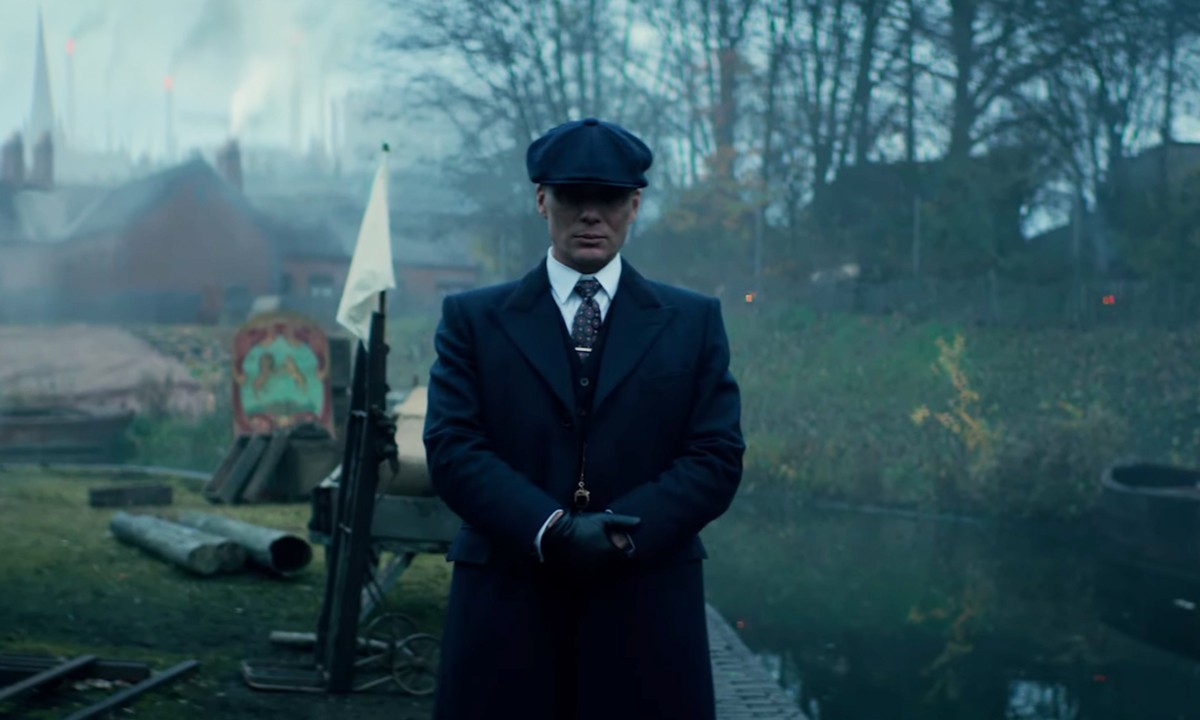
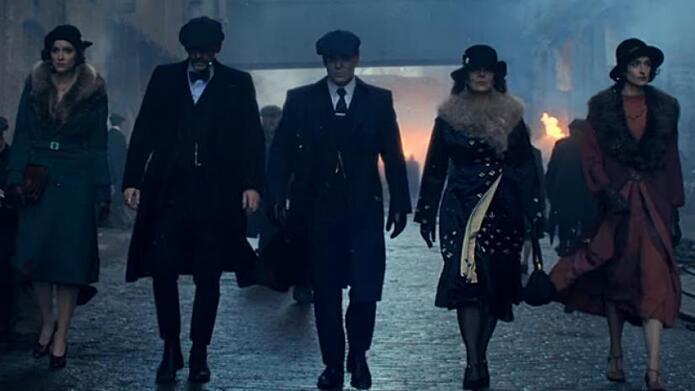
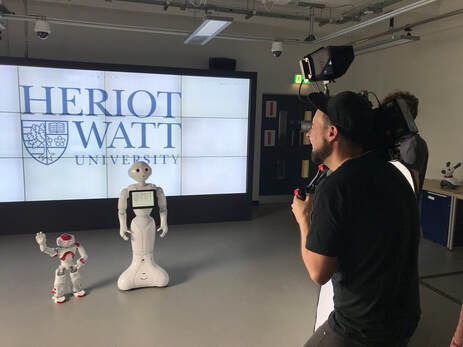
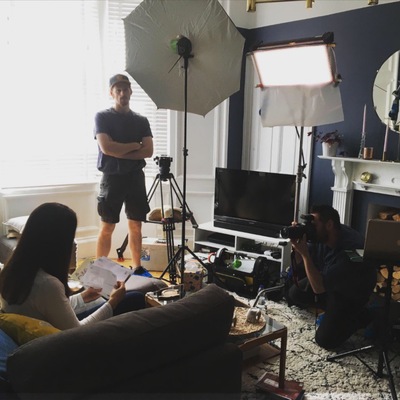
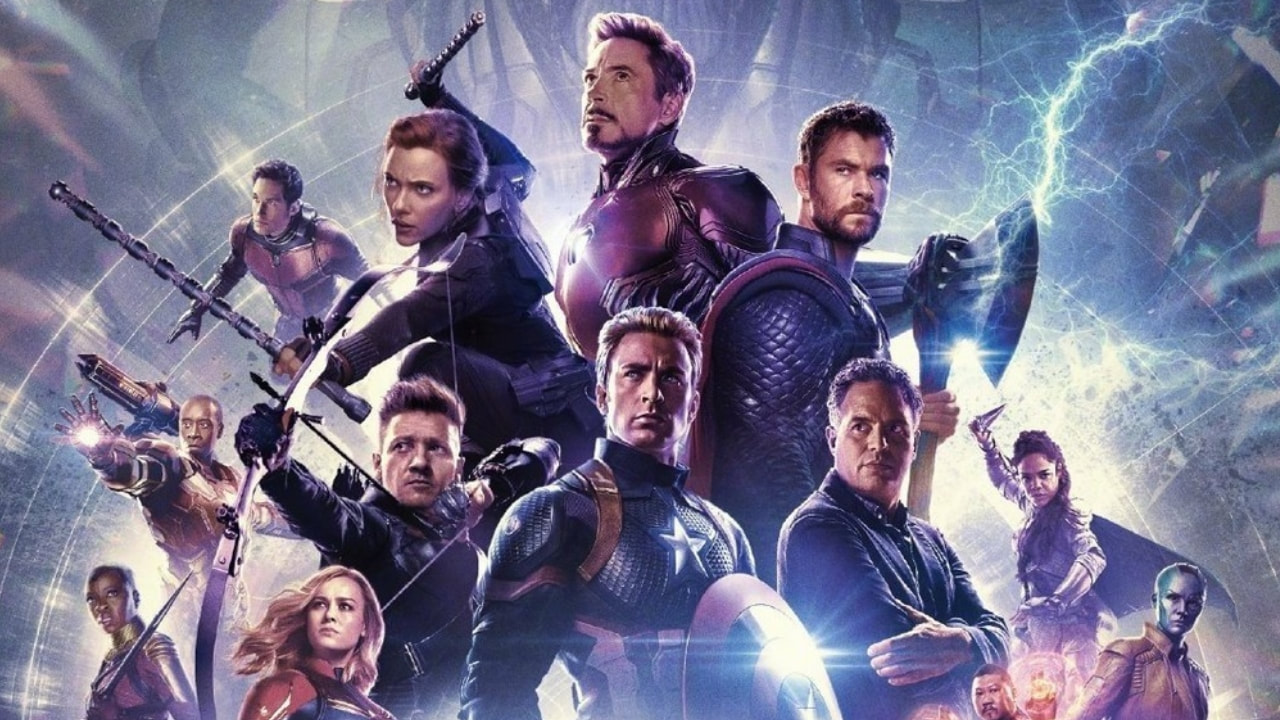
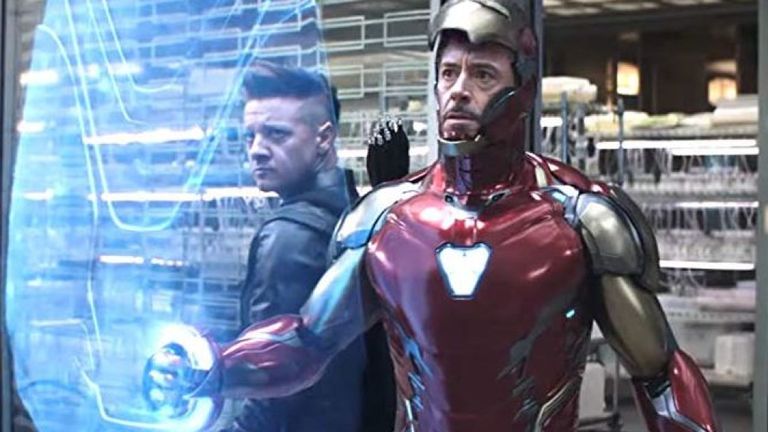
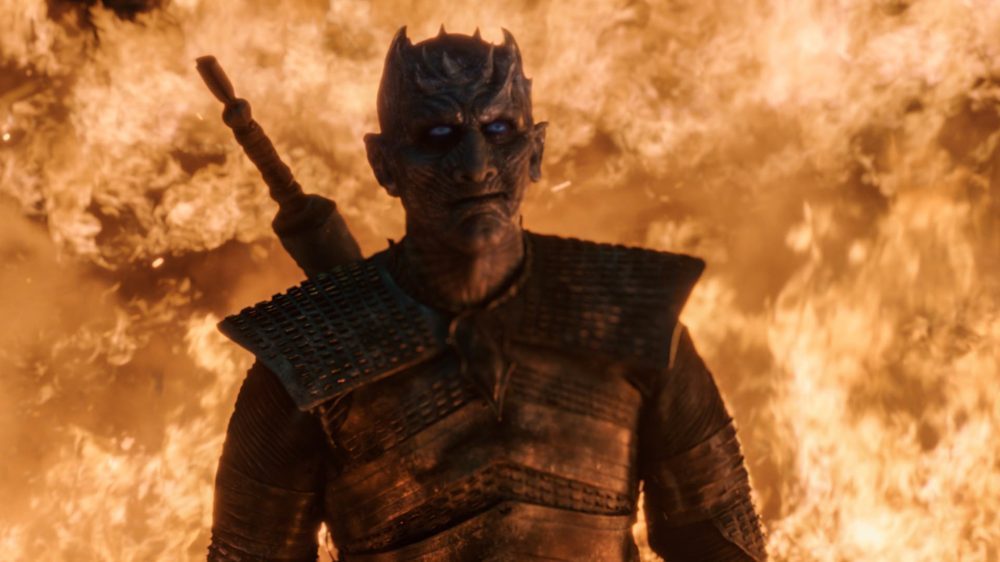
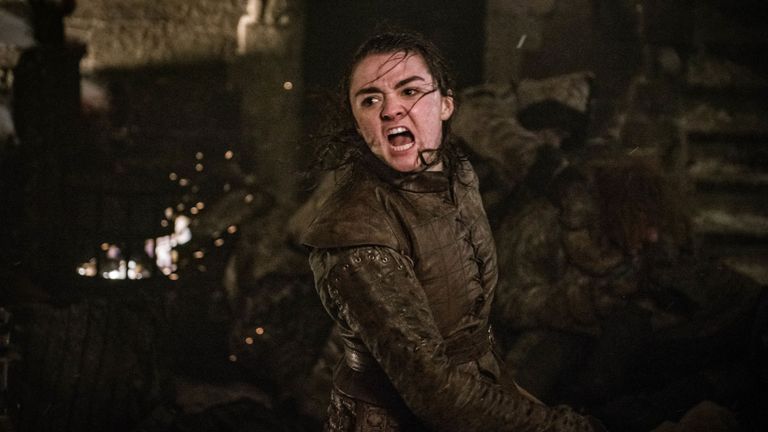
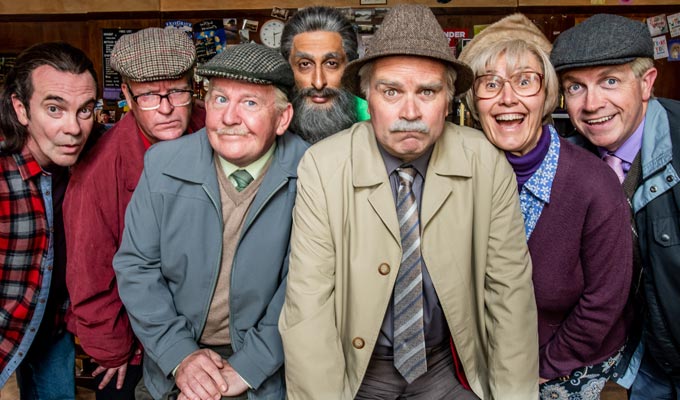
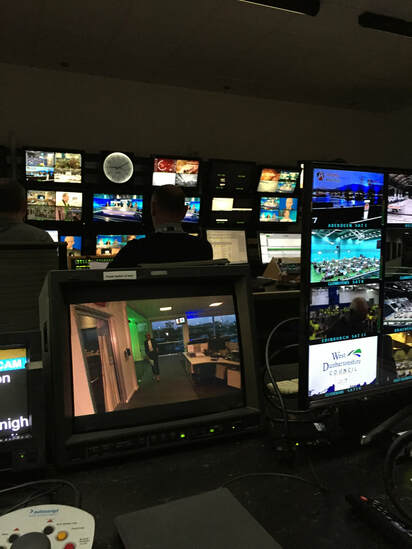
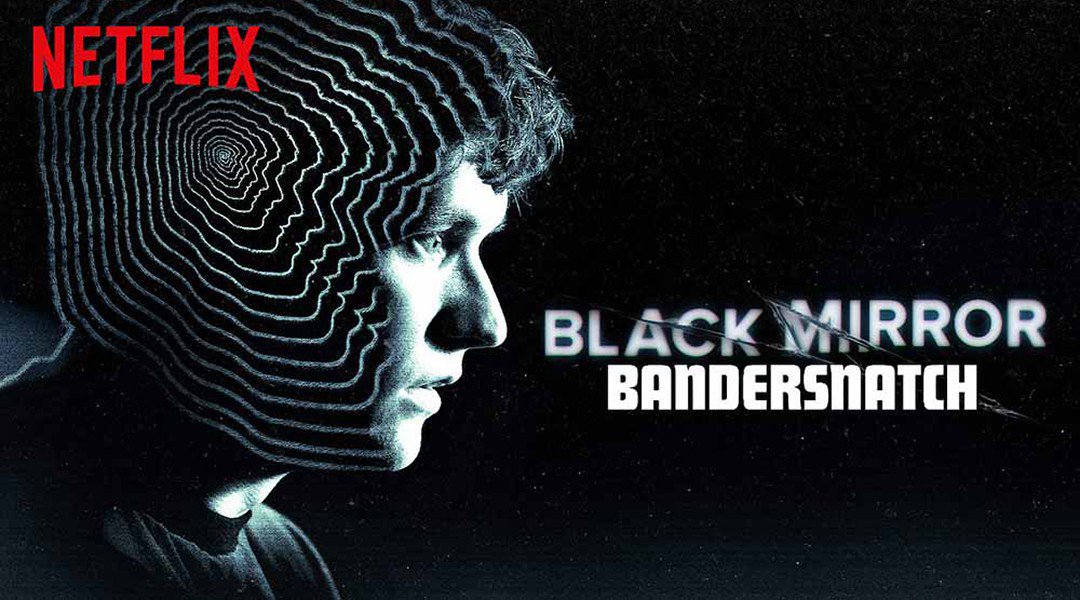
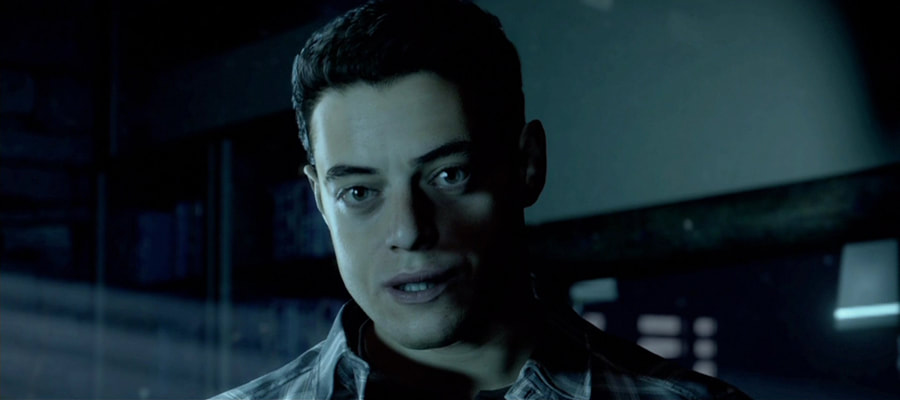
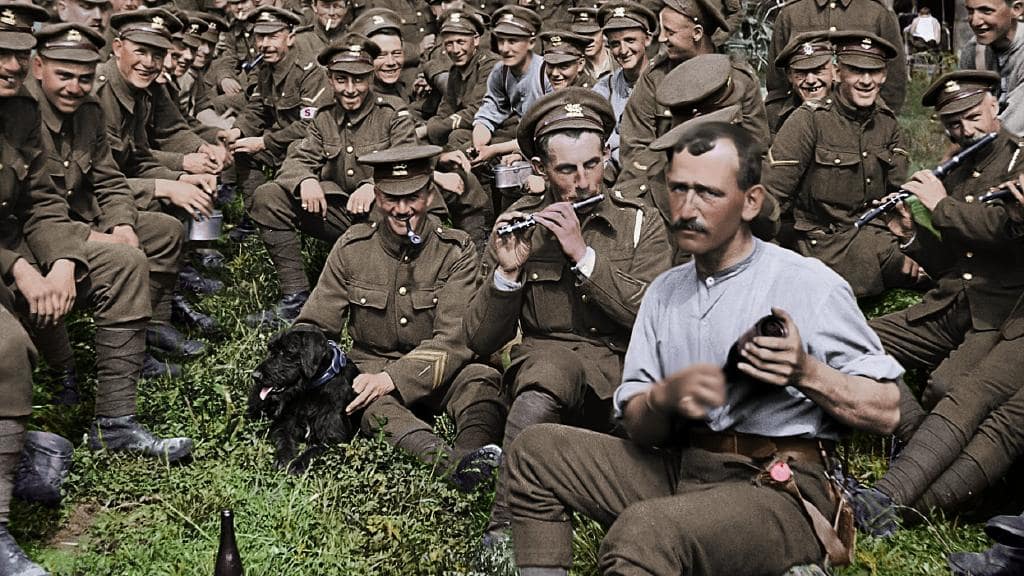
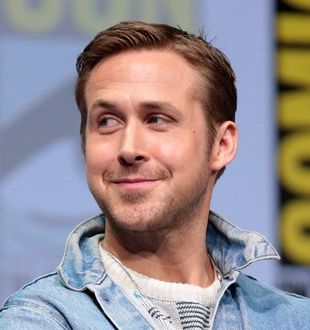
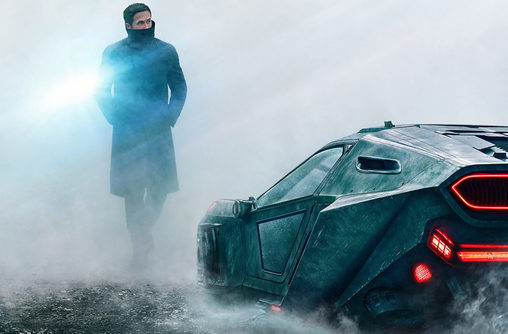
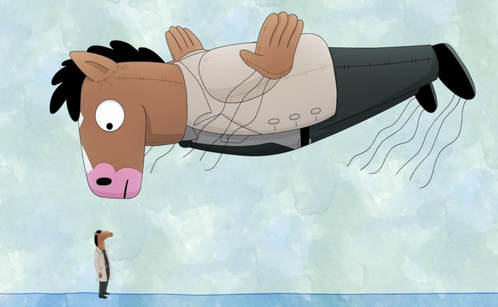
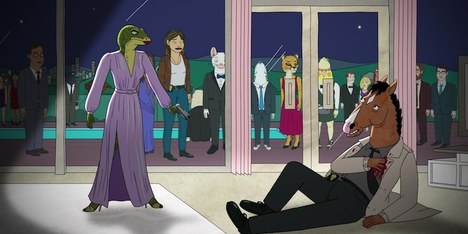
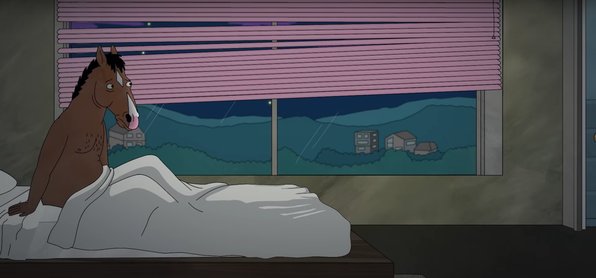
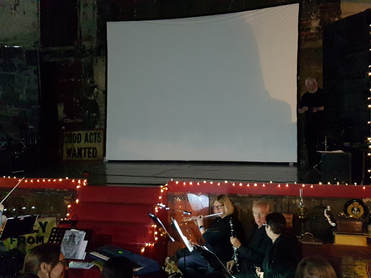
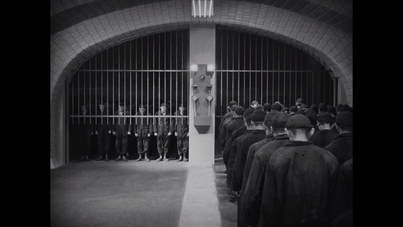
 RSS Feed
RSS Feed
